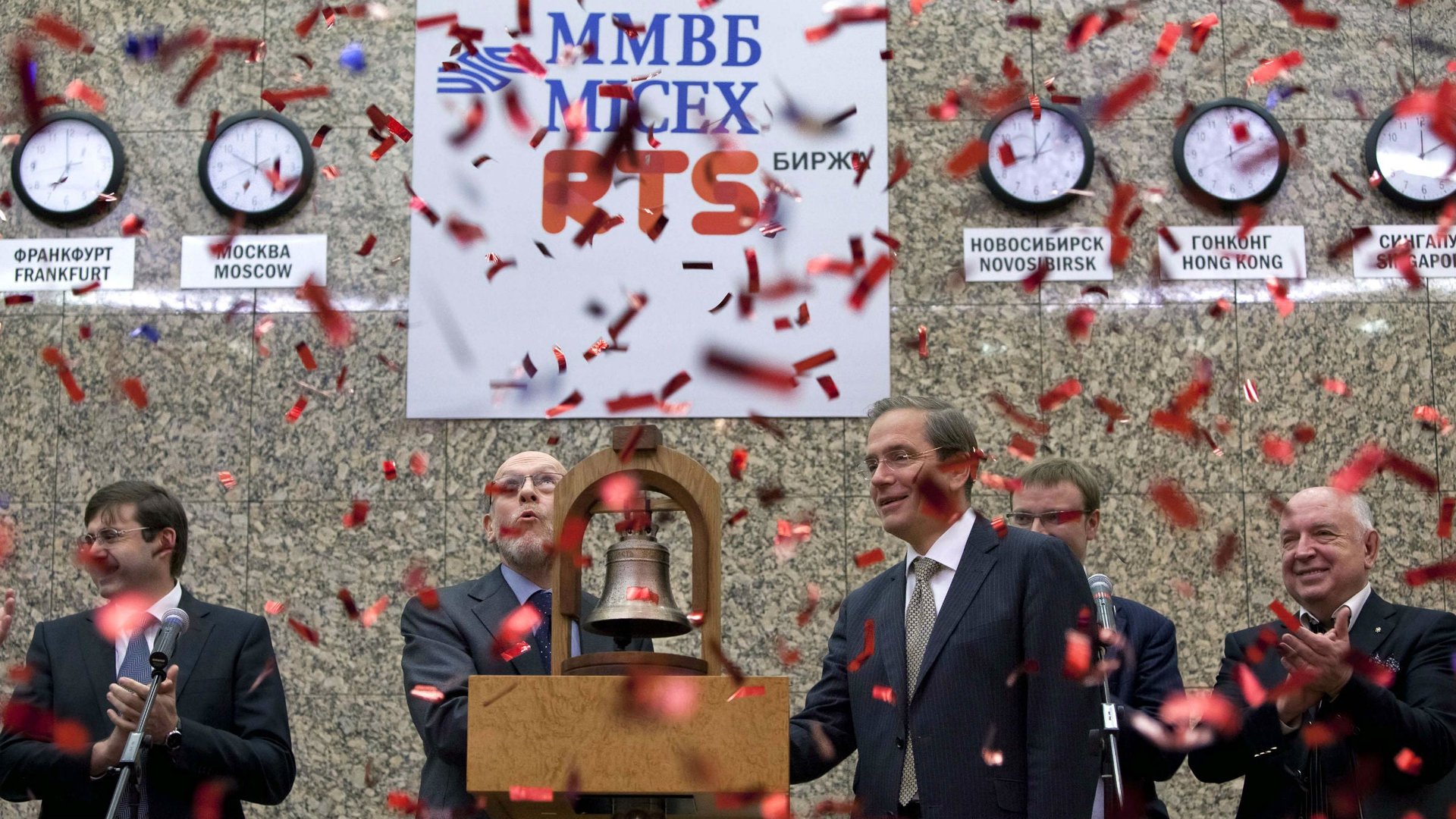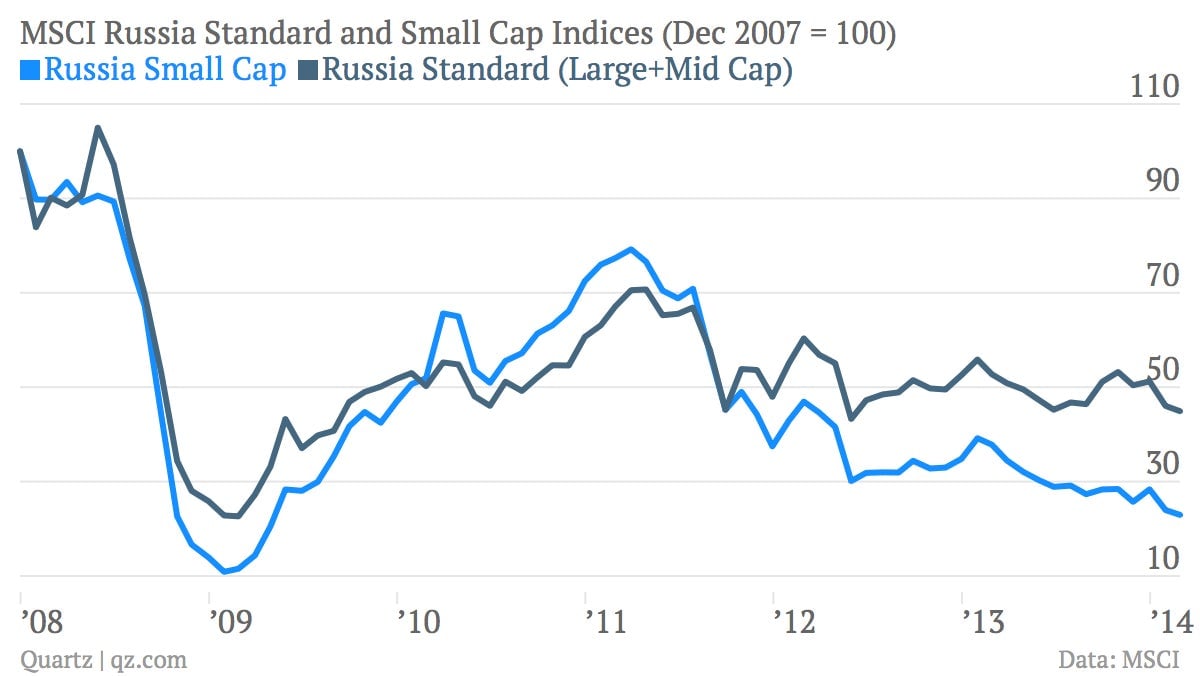Why I’m going to invest in the Russian stock market
Heaven help me, I’m going to invest in Russia.


Heaven help me, I’m going to invest in Russia.
I’m not going to overthink it. I’m not going to let people talk me out of it. I am going to throw some of my money into the Russian stock market—and then forget about it for a few year.
The riskier the stocks, the better. The investment of choice looks like the MarketVectors Small Cap Russia exchange-traded fund (RSXJ), which holds stakes in about 30 small Russian companies. The fees are 0.71%.
Yes, it sounds extreme. Naturally, there’s plenty of risk. Russia is a corrupt dictatorship in an international crisis. Vladimir Putin risks isolation and embargo.
Stocks can go down as well as up. No tears. Caveat emptor.
So why am I getting ready to make this crazy bet? Four reasons—or rather, three reasons and an educated guess.
First, the Moscow stock market is just on the cusp of a rare and exclusive club—the 60% club, reserved for asset classes which have fallen more than 60% from their all-time peak.
The Russian market is down 59%, in US dollar terms, from the all-time high seen in the spring of 2008, according to market data firm MSCI.
Even better? Russian small cap stocks nearly entered the 80% club. On Monday, they were down 78% from their peak in December 2007.

These really are rare clubs. Past members of the 60% club include Las Vegas real estate (2011), gold bullion (2000), the Nasdaq Composite index (2002), and the Nikkei 225 (2001).
Cue the Bennett Rule, named for my old friend Peter Bennett, a veteran and highly successful money manager at Walker Crips in London: Always take a wager on a durable asset class (i.e., not, say, Pets.com) when it joins the 60% Club. Over the following five years you will almost always make a handsome profit.
It’s rough and ready, but there is sense to it. When an asset has fallen that far, it’s usually oversold. The market has given up and lost interest.
Naturally it doesn’t always work, and things can go down quite a way further before bottoming out. A few very rare assets join the 80% club. One or two join the 90%. But if you hang on, it really doesn’t matter.
My second reason: Everyone else is too afraid to.
Look around. Are you seeing lots of money managers and analysts buying and recommending Russian stocks? Of course not. That’s the point. They’re too afraid.
You didn’t see these people being bullish of, say, gold at $250 an ounce, or Las Vegas real estate in 2011, or Greek stocks in 2012.
The comedian John Cleese once said the typical Englishman’s highest ambition was to go through life without ever being embarrassed. Money managers and Wall Street analysts are in the same boat. Embarrassment is professional death.
And, all other things being equal, when so many people are constrained from being bullish it would tend to make an asset underpriced.
My third reason to buy these stocks? They’re cheap.
Oh, boy, are they cheap.
The Russian market trades on just five times forecast earnings, according to estimates. Small company stocks, which have fallen further, seem even cheaper. Of the top holdings in the Market Vectors small cap Russian fund, several are just three times forecast earnings.
The world market trades on 15 times forecast earnings, and United States stocks 17 times, according to estimates.
Yes, there are plenty of risks. But that is a major reason the stocks are already so cheap.
When we buy a share we are just buying a share of a company’s future cash flow. That’s it. And, by definition, the less we pay for each dollar of future cashflow, the better the deal. I don’t think I’ve ever seen a solvent company’s stock trade on three times forecast earnings before.
Finally, my fourth reason for making this investment is a guess (educated or not). Does Vladimir Putin want anything more than quasi-Russian Crimea? And how can the West really impose sanctions when the world needs Russia’s oil and gas? The oil price has jumped because of the crisis: The world needs the oil more, not less.